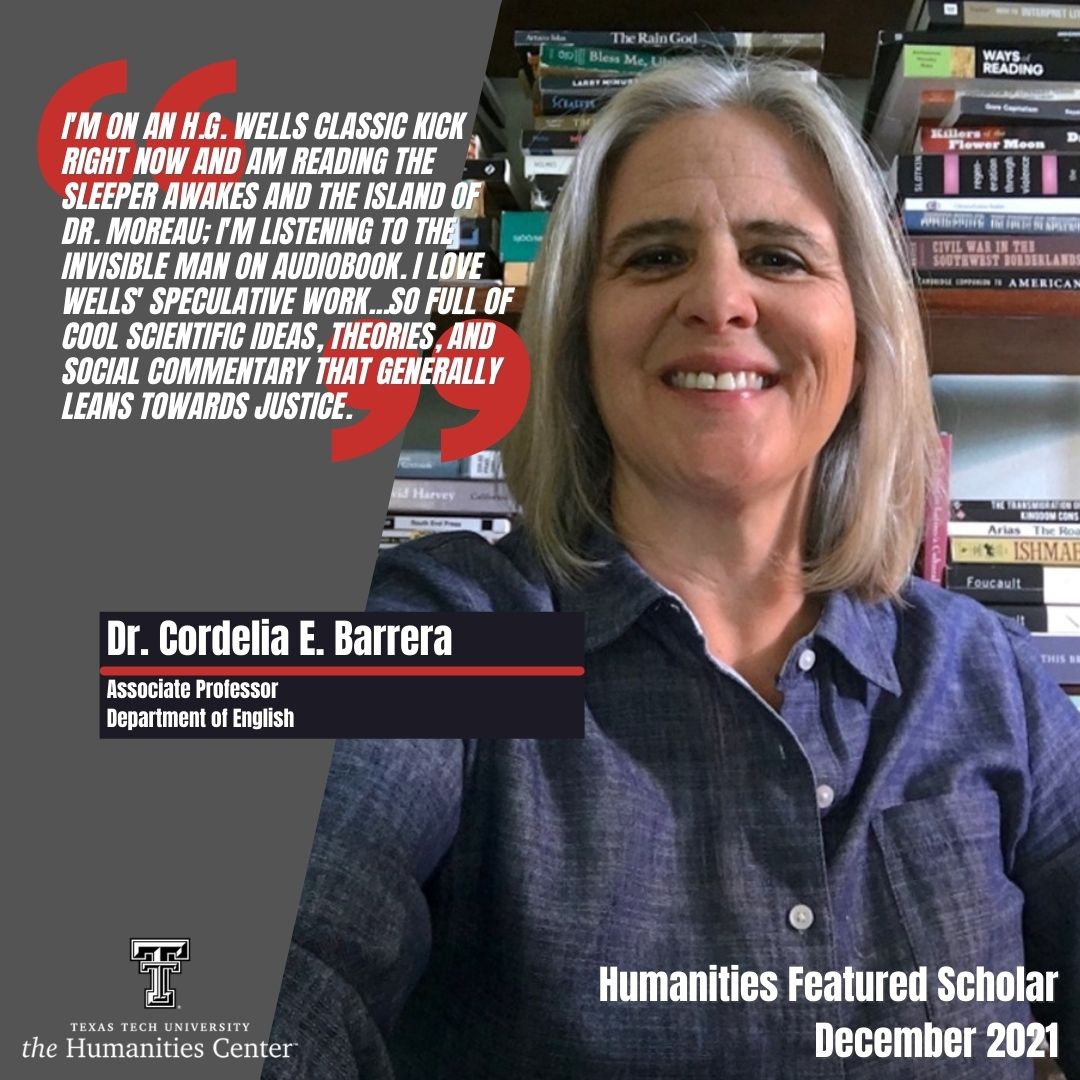Featured Scholar - December 2021

What are you watching/streaming?
Right now, I'm watching Mare of Eastown, Season 3 of Star Trek Discovery, and as many old King of the Hill episodes i can handle...which is alot.
What games are you playing?
For family get-togethers we like to play Mexican Train dominoes, Uno, Mexican Loteria,
and a hysterical board game called Go To Hell! which is described as a "mad dash to
see who can get Dante to the 9th Circle of Hell first, while avoiding Heaven at all
costs." Throw Throw Burrito by Exploding Kittens is a family favorite at our lakehouse.
What are you listening to?
Most of the music I listen to falls under the label of "Adult Alternative." I like
to stream Seattle's KEXP, which is really eclectic. If I'm in the mood, I might turn
on KNBT, the New Braunfels Americana station or Kansas Public Radio's awesome "Retro
Cocktail Hour." I'm pretty big into podcasts, which I like to listen to when I ride
my mountain bike. Some of my favorites include Hidden Brain, Throughline, The Rachel
Maddow Show, and the TED Radio Hour.
What are you reading?
I'm on an H.G. Wells classic kick right now and am reading The Sleeper Awakes and The Island of Dr. Moreau; I'm listening to The Invisible Man on audiobook. I love Wells' speculative work...so full of cool scientific ideas,
theories, and social commentary that generally leans towards justice. During summer
months, I often turn to old fiction favorites for a re-read. My re-reads this summer
include Daniel Keyes' Flowers for Algernon and Daniel Quinn's Ishmael. I've generally got a few non-fiction or academic books going at any one time, and
for now these include: Forget the Alamo: The Rise and Fall of an American Myth by Brian Burrough and Chris Tomlinson; The Condemnation of Blackness: Race, Crime and the Making of Modern Urban America by Khalil G. Muhammad; Trace by Lauret Savoy.
What are you writing/thinking about?
My book, The Haunted Southwest: Towards an Ethics of Place in Borderlands Literature will be published by TTU Press this December, so, although major revisions are done,
there are still lots of details to work through, which means the project is still
actively on my mind. I've been thinking about a lot, however, about an essay Kim Stanley
Robinson wrote for The New Yorker read a while back, when we were in the first six months or so of the Covid-19 pandemic.
The title of the piece is "The Coronavirus is Rewriting our Imaginations." It's a
great piece about change and structures of feelings that accompany big changes in
society. What my mind will not let go is his phrase, "The Great Pause." The Great
Pause refers to the slowing down of everything during the Covid crisis: our busy workdays,
our plans for our future, the money we make or don't make, the careers and jobs we
hate or love...all of things that drive us individually and that shape our societies.
What if, he asks, during this pause, we choose to do things differently? What if we choose to view our world and those around us
in an entirely different way--one that is less racist, one that values the planet,
essential work and workers, equitable education, healthcare, and resources? What if
this "pause" compelled us, as individuals and a society, to think differently about
the economy or the way our governments or institutions pattern our lives? In other
words, what if we didn't get back to a "normal" that has shown itself to be unsustainable
and destructive for so many? I can't stop thinking about the "we" in this equation...us
humans and the societies we've built. I can't stop thinking about how I hope things
will change for the better, especially now that we've seen and lived through so many
of what we once imagined could be the "worst" scenarios.
Humanities Center
-
Address
Texas Tech University, 2508 15th Street, Weeks Hall 221, Lubbock, TX 79409-1002 -
Phone
806.742.3028 -
Email
humanitiescenter@ttu.edu
